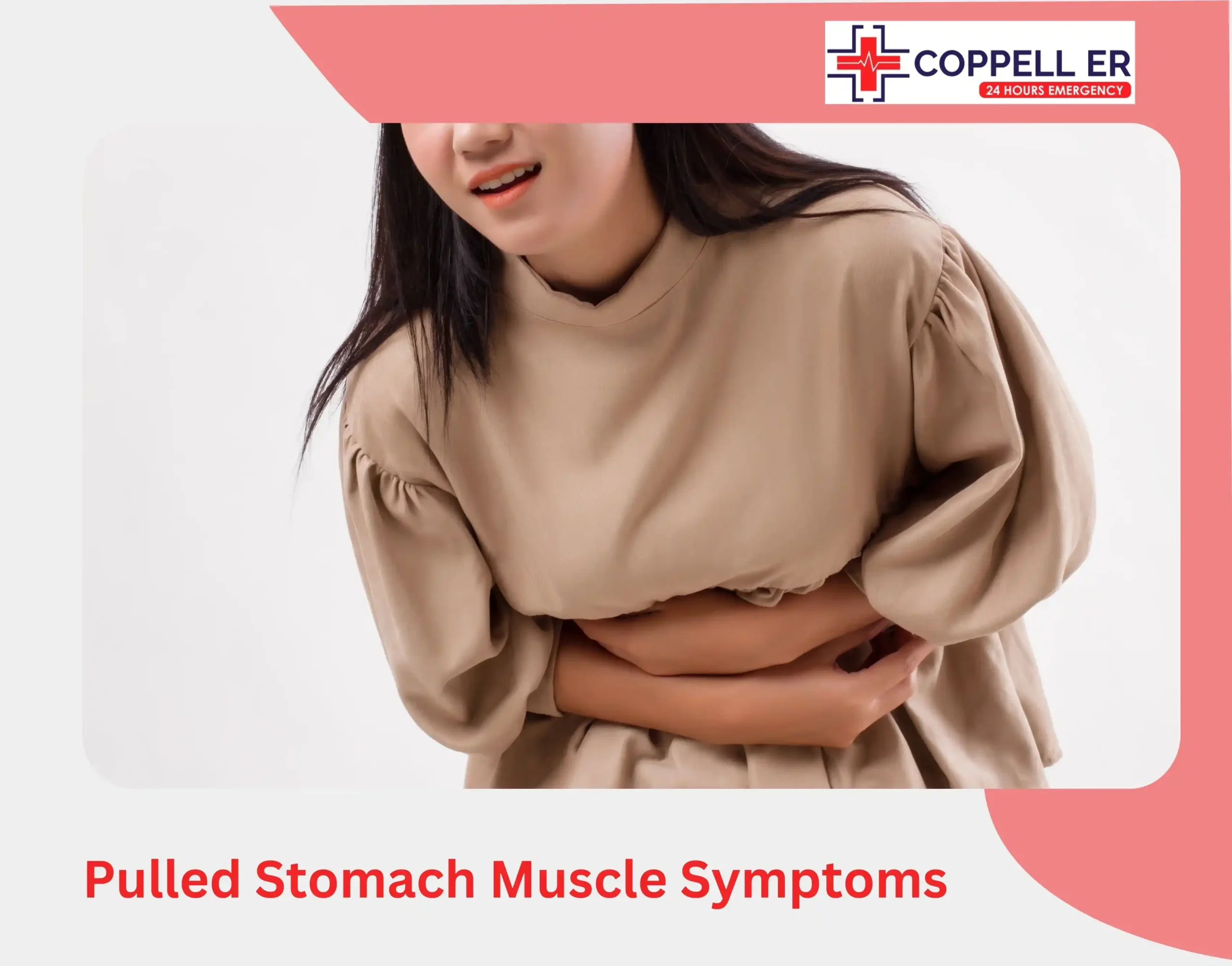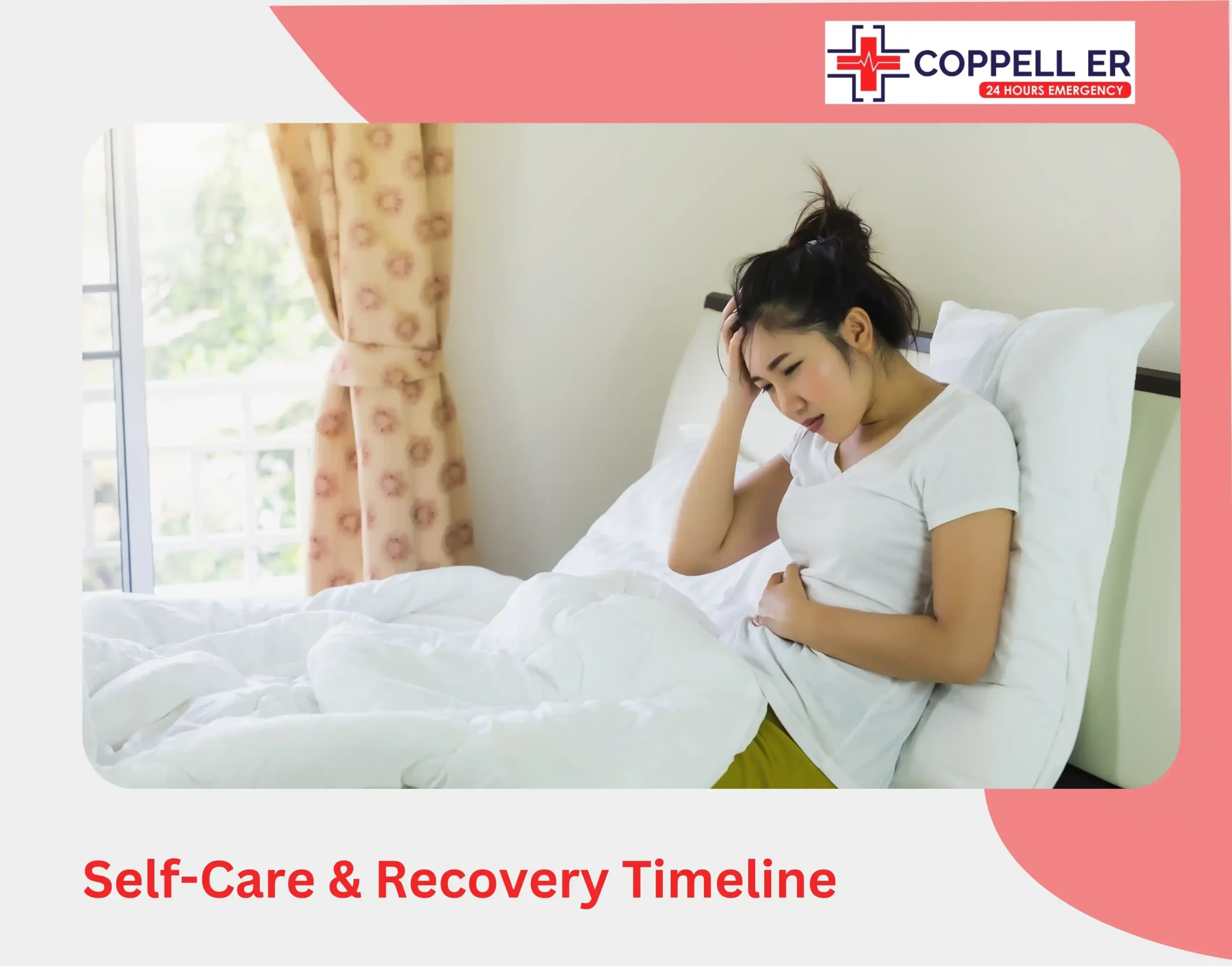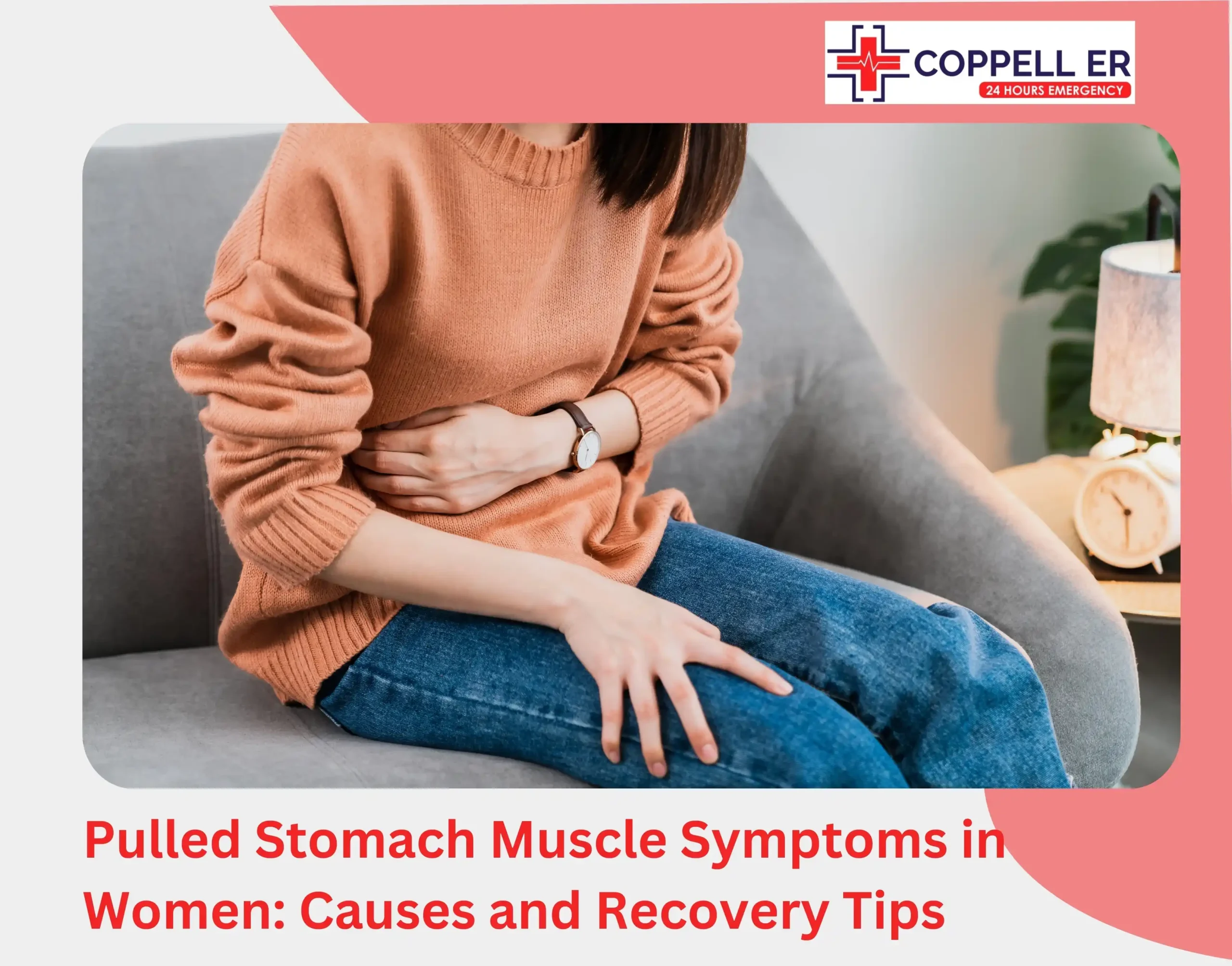A pulled stomach muscle happens when the muscles in your belly (abdomen) get stretched too much or tear. This can occur during exercise, lifting something heavy, coughing a lot, or even sudden movements.
For women, a pulled stomach muscle can also happen after pregnancy or daily household work that puts pressure on the stomach muscles. Let’s see what the common symptoms of a pulled stomach muscle in women are, how to know if it’s just an abdominal strain or something more serious, and when you should see a doctor.
Pulled Stomach Muscle Symptoms

A pulled stomach muscle can manifest differently for each person, but there are some common signs to watch out for. These core injury symptoms usually appear soon after the muscle is injured.
- Sharp pain during movement – You may feel sudden pain when coughing, sneezing, laughing, bending, or twisting.
- Tenderness, swelling, or bruising on the abdomen – The skin over the muscle may feel sore to the touch, look swollen, or even show a bruise.
- Muscle spasms or cramping – The abdominal muscles may tighten or cramp when you try to move, bend, or sit up.
- Weakness or stiffness in the core – Everyday movements, such as walking, getting out of bed, or stretching, may feel harder than usual.
- A “pop” or dent at the time of injury – Some people feel or hear a popping sound, or notice a small gap where the muscle tore. This may suggest a more serious abdominal strain.
- Pain when breathing deeply or standing up straight – Because the stomach muscles help with breathing and posture, even simple actions may hurt.
- Difficulty with daily tasks – Lifting objects, sitting upright, or even laughing may make the pain worse.
- Warmth or redness in the area – The injured spot may feel warmer or look slightly red due to inflammation.
When It Might Be More Than a Strain
Most of the time, stomach muscle pain in women is caused by a simple strain that heals with rest and care. However, sometimes the core injury symptoms may indicate a more serious issue, such as a hernia or another medical condition that requires urgent attention.
Hernia Warning Signs
A hernia happens when part of an organ (often the intestine) pushes through a weak spot in the abdominal wall. Its symptoms can look similar to a pulled muscle, but there are some key differences:
- Visible bulge in the abdomen or groin – A soft lump that becomes more noticeable when standing, coughing, or lifting something.
- Pain or pressure that gets worse with effort – Unlike a muscle strain, the discomfort may increase when you try to strain, lift, or even go to the bathroom.
- Nausea or upset stomach – If the hernia is trapping part of the intestine, you may feel sick or lose your appetite.
- Pain that doesn’t match a normal strain – The pain may feel deeper or more constant than typical muscle soreness.
Emergency Red Flags of a Pulled Stomach Muscle

Whether it’s a severe strain, a hernia, or another condition, some pulled stomach muscle symptoms mean you should not wait to see a doctor. Go to the emergency room right away if you notice:
- Severe or unrelenting muscle pain in women that does not improve with rest.
- Fever combined with abdominal pain could signal infection.
- Persistent swelling that doesn’t go down after several days.
- Vomiting, nausea, or inability to keep food down, along with stomach pain.
- Redness, warmth, or sudden worsening of the injured area.
Self-Care & Recovery Timeline

Most pulled stomach muscles will get better on their own with simple home care. The key is to give your body time to heal and avoid activities that exacerbate the pain.
Home Care Steps
- Rest – Avoid heavy lifting, intense exercise, or sudden twisting until the pain gets better.
- Ice – Apply an ice pack or cold cloth to the sore area for 15–20 minutes at a time, several times a day during the first 2 days. This helps reduce pain and swelling.
- Compression – Some women find relief by using a gentle abdominal binder or wrap for support, but don’t make it too tight.
- Elevation – When lying down, try keeping your upper body slightly raised with pillows to ease pressure on the muscles.
- Heat after 48–72 hours – Once swelling subsides, a warm towel or heating pad can help relax the muscles and reduce stiffness.
Pain Relief
- Over-the-counter medicines like ibuprofen or acetaminophen can reduce pain and swelling.
- An abdominal binder or light support belt may help stabilize the muscles during daily movements.
Recovery Expectations
- Mild strain – Usually heals in about 1–2 weeks with rest and care.
- Moderate strain – May take 3–6 weeks, especially if swelling or bruising is present.
- Severe strain (muscle tear) – Can take several months and may need medical treatment, physical therapy, or, in rare cases, surgery.
When to Call or See a Doctor
Most pulled stomach muscles will improve with rest and simple at-home care. However, sometimes the pain or symptoms can indicate something more serious. You should contact a doctor if:
- No improvement after a few days – If your pain, swelling, or stiffness does not get better within 5–7 days, or if it gets worse instead of better.
- Suspected hernia signs – If you notice a lump or bulge in your belly or groin, or you feel pressure and nausea along with the pain, see a doctor quickly.
- Severe weakness or a visible defect – If the stomach feels very weak, or you see a dent, gap, or unusual shape in the abdominal wall, this may be a Grade III strain (serious tear) that requires medical imaging or specialist care.
- Other concerning symptoms – Fever, vomiting, spreading redness, or severe, constant muscle pain in women are red flags that should never be ignored.
Final Thoughts
A pulled stomach muscle is usually not dangerous, but it can cause significant pain and make daily tasks difficult. Most strains heal with rest, gentle care, and patience. Knowing pulled stomach muscle symptoms, such as sharp pain, swelling, or stiffness, can help you recognize the problem early and prevent it from worsening.
For most women, recovery typically takes a couple of weeks, but severe abdominal strains may require longer recovery times or even medical assistance.
FAQs
1. Can you pull a stomach muscle just from coughing or sneezing hard?
Yes, forceful coughing or sneezing can strain abdominal muscles, especially if you’re already weakened from illness or pregnancy. The sudden muscle contraction can cause small tears in the muscle fibers.
2. How long does a pulled stomach muscle take to heal in women?
Mild strains typically heal in 1-2 weeks, moderate strains take 3-6 weeks, and severe muscle tears may require several months. Recovery time depends on strain severity and how well you rest the injured area.
3. How can I tell if my stomach pain is a pulled muscle or something more serious like a hernia?
Pulled stomach muscle pain worsens with movement and improves with rest. A hernia typically creates a visible bulge, causes pressure that worsens with straining, and may include nausea or persistent discomfort that doesn’t improve with typical muscle strain treatments.




